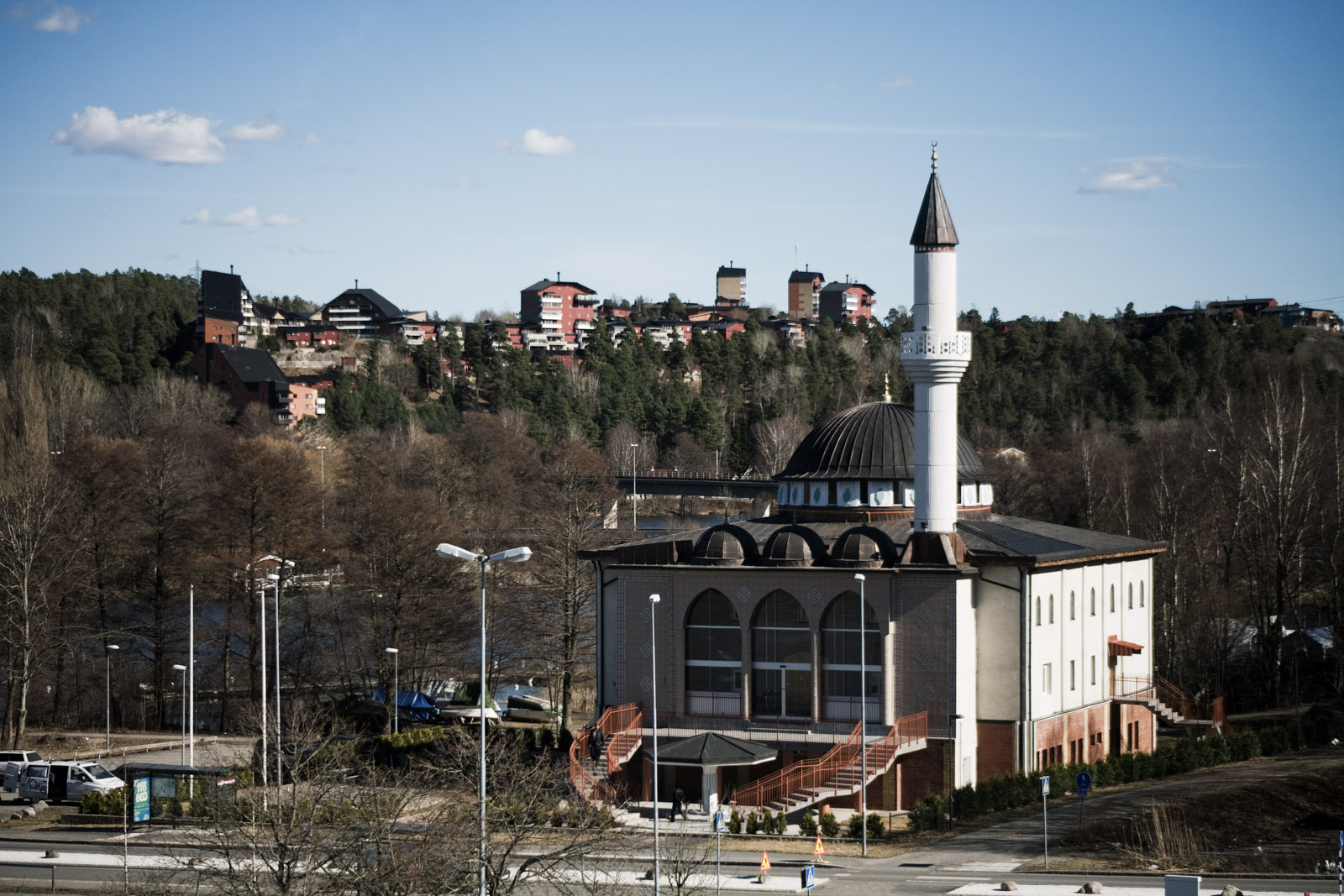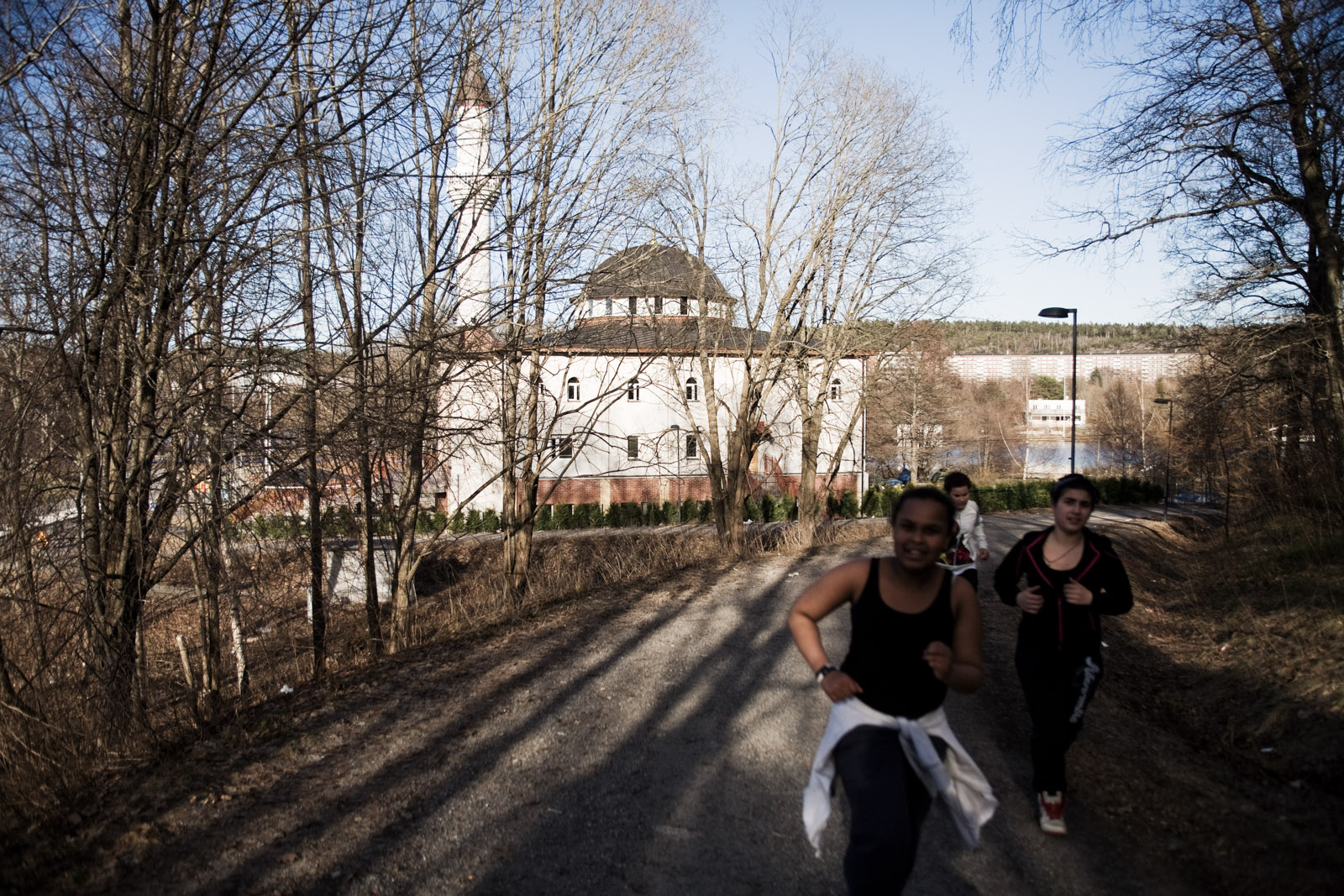Sweden : First Call to Prayer
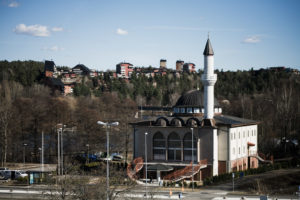
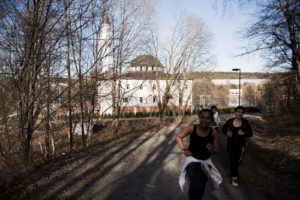
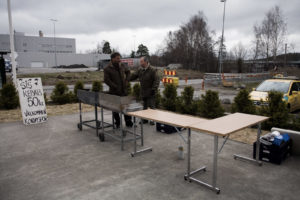
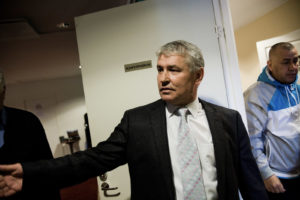
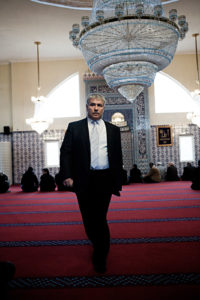
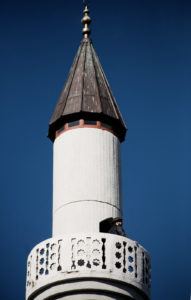
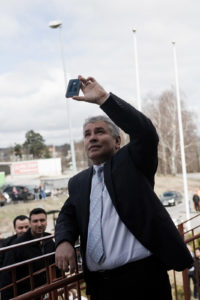
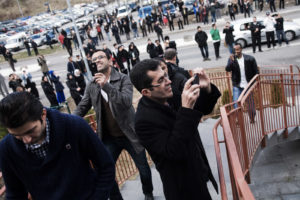
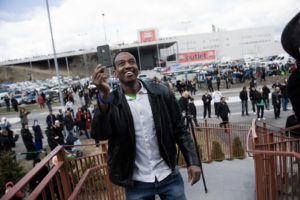
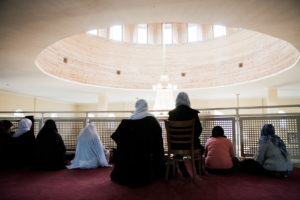
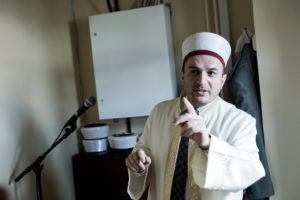
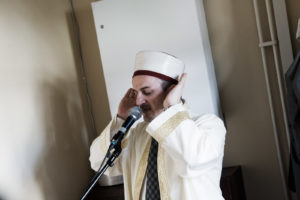
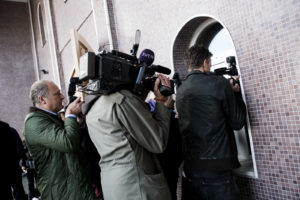
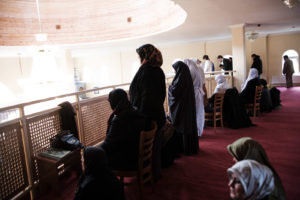
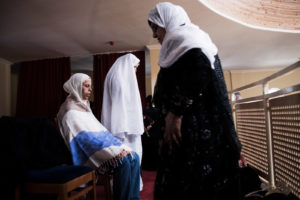
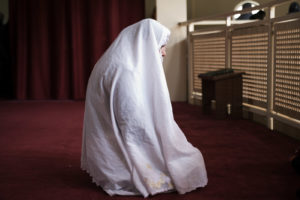
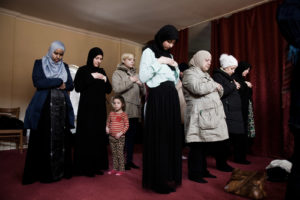
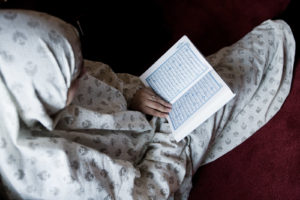
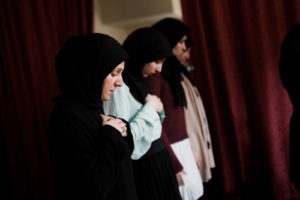
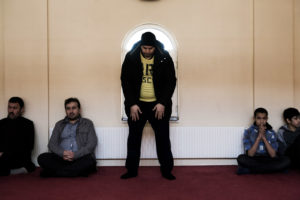
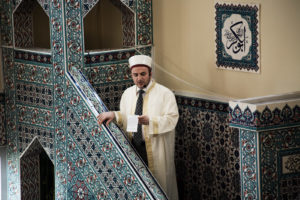
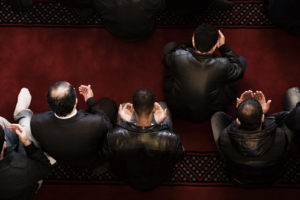
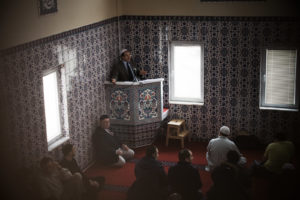
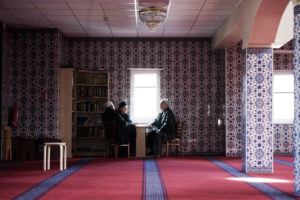
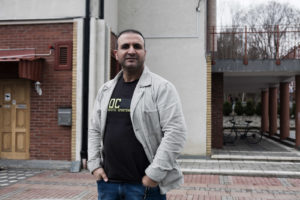
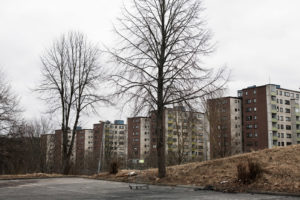
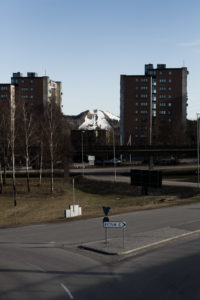
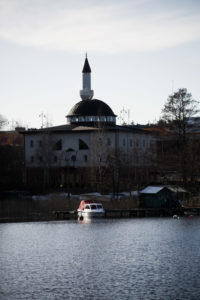
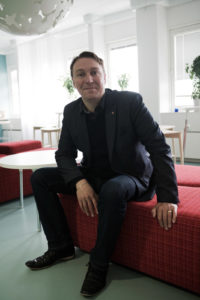
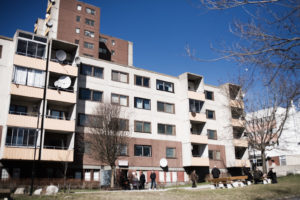
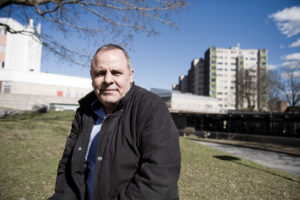
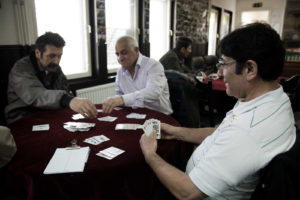
Fittja mosque, in Botkyrka district, in the suburbs of Stockholm.
Teenagers run near the Fittja mosque, in the suburbs of Stockholm.
On friday april 26, people start preparing to welcome people who will come for the first call to prayer in Sweden.
Ismail Okur, the mosque's director, the friday of the first call to prayer of Sweden.
Ismail Okur, the mosque's director, the friday of the first call to prayer of Sweden.
The last soundchecks before the first call to prayer. The sound installation must compel to very strict rules decided by the swedish police.
Ismail Okur, Fittja mosque director, films the minaret during the first adhan (call to prayer) in Sweden.
Hundreds of muslim gather around the mosque to pray, on the friday of the first call to prayer in Sweden.
Hundreds of muslim gather around the mosque to pray, on the friday of the first call to prayer in Sweden.
On the first floor, reserved to women, before the friday prayer.
Fittja's imam is going to sing the first call to prayer of Sweden.
The imam sings the first adhan (call to prayer) in Sweden.
The local press films the first adhan (call to prayer) in Sweden.
Women attend to the friday prayers in Fittja Mosque.
Women attend to the friday prayers in Fittja Mosque.
Women attend to the friday prayers in Fittja Mosque.
Women attend to the friday prayers in Fittja Mosque.
Women attend to the friday prayers in Fittja Mosque.
Women attend to the friday prayers in Fittja Mosque.
Men pray during friday prayers at the Fittja Mosque.
The imam, during the friday prayers in Fittja mosque.
Men pray during friday prayers at the Fittja Mosque
Friday's prayers at the fittja mosque, in the suburbs of Stockholm.
Men in the mosque, after the friday prayers.
Arif, 39, has lived in Sweden for 15 years, he's of turkish origin. He thinks that Sweden is Scandinavia's most advanced country, in terms of equal rights, more so than Norway, where he often works.
Buildings in Fittja, a district in the suburbs of Stockhom, where 65% of the population comes from immigration.
Buildings in Fittja, a district in the suburbs of Stockhom, where 65% of the population comes from immigration.
Fittja mosque. Most of the believers here are of turkish origin.
Jens Sjöström, deputy chief of Botkyrka's municipality, who took care of the whole process and public debates, in the 18 months prior to the authorization for the adhan.
The kurdish cultural center, near Fittja metro station, 30 minutes from the center of Stockholm. Here, the majority are from turkish and kurdish origins.
Muharem, living in Sweden for 37 years, is a taxi driver. He lives in Fittja. He comes from Ankara, in Turkey, and isn't religious at all, but he says he appreciates that a democracy such as Sweden accepts the adhan (call to prayer)
Mevlüt, 43 (right), is kurdish, he arrived in Sweden at 18. When he has the time, he goes to play cards at the kurdish cultural center with friends. He's muslim, but not religious. For him, the call to prayer is a lack of respect for Sweden's traditions, Mevlüt is worried of the consequences it could have on the rise of racism and the extreme right party.
April 2013 – An early spring friday. While early believers already gathered inside the mosque, many others are rushing out as they hear the first notes of the call to prayer of the muezzin. A familiar scene, from Rabat to Istanbul via Beirut. But we are in the district of Fittja, a suburb south of Stockholm, and this is the first adhan (call to prayer) that rises in the Swedish sky.
More than a year and a half after its request, the Turkish Islamic association that manages the mosque finally prevailed. But if the debate has taken place in the Swedish society, it was not discussed in the media or in court. The Stockholm Police, in charge of all authorizations for the use of public space, made the final call. The soial-democrat municipality of Botkyrka (which Fittja depends on) did not object the police decision. The adhan can therefore take place once a week, for a three to five minutes.
Fittja is not a den of extremists. The majority of the faithful is Turkish in a district where 65% of the population comes from immigration. For now, the imam finishes his call to prayer in a crowded mosque. On the square, Ismail Okur, its director, films the minaret with his cell phone. A young and smiling man who beats his chest with his fist, videos the scene too.
On the women dedicated floor, Amani, a young Jordanian-Swedish, smiles, heart pounding. For her, as for the majority of believers here, the call to public prayer is a historic breakthrough. “In Jordan, we hear it all the time, of course. Hearing it here, in Sweden, where I lived for 7 years is something very strong.” In the crowd around the mosque, policemen keep a close watch.
Two representatives of the far right party Swedish Democrats, which owns 20 seats in parliament since 2010, also came to appreciate the situation. But the Fittja mosque is not in a residential area, and the sound volume of the Adhan is finely tuned so it’s hard to demand the ban of the call to prayer because of noise pollution.
Botkyra officials were very careful. Jens Sjöström, who handled the process, explains : “There was a consensus among all parties – except the Swedish Democrats – that this decision is not political and that it is the police who has to decide”. A line of argument for politicians not to get caught in an ultra sensitive debate with uncertain political gains. But for three months, between November and January, the town has held public meetings and debates, for people who wished to address their legitimate concerns . “In the end, those who raised questions were not residents of the municipality but lived elsewhere in Sweden and even in other European countries.” Emanuel Ksiazkiewicz, his assistant, was surprised to have received a lot of emails from french extreme right organizations.
Stories | Tags: Fittja, Islam, religion, Sweden.
Propulsé par WordPress et bidouillé à partir de F8
Contenu protégé, merci de me contacter pour toute utilisation
© 2026 Juliette Robert – Photographer
CGV // Terms & conditions
